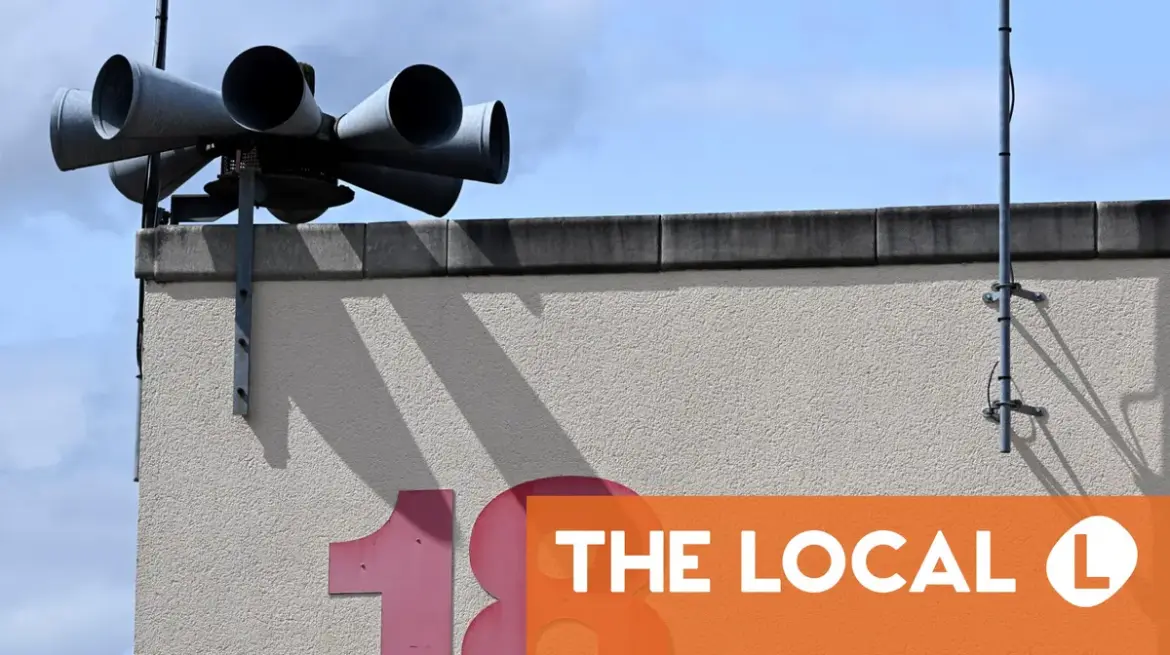The French government is advising all residents to create a survival kit to have in their home in the event of a crisis such as war, nuclear accident, cyber-attack or a natural disaster. Here’s what they suggest you pack.
The French government has published a new emergency survival guide (Tous Responsables – everyone responsible) giving French residents advice on what to do in a range of emergency scenarios.
READ ALSO: ‘World in crisis’: France publishes new emergency survival guide
The guide has been published in the context of rising international tensions, but it covers all kinds of scenarios – from war and cyber attacks to nuclear accidents or chemical leaks via natural disasters such as flooding or wildfires.
France is not alone among European countries in doing this – over the past two years, many countries have updated their emergency advice and suggested that residents create a survival kit.
So what does France suggest you put in it?
The aim of the kit is to allow people to eat, drink, stay warm, provide medical care and stay connected to the outside world to receive information and help.
The guide adds, “the first three days of a crisis are the most difficult”.
Food and drink – it’s advised to stockpile six litres of water per person, plus non-perishable foods that do not require cooking (if you’re going for tinned goods, make sure to include a tin opener if needed).
The guide recommends tinned or bottled food, plus tea/coffee and baby milk or pet food if applicable.
Stay warm – you need to be able to stay warm, remembering that electricity may be interrupted. It’s advised to have blankets, sleeping bags and thermal clothes (including a hat and gloves).
You should also have a torch, candles and matches.
Medication – the emergency kit should contain a basic first aid kit, plus supplies of vital medication if applicable and copies of prescriptions, plus a spare pair of glasses if you are a wearer.
Hand gel and masks are also advised.
Connection – it’s important to be able to stay connected to the outside world to receive information and help – remembering that the internet may be unavailable.
It’s advised to have a battery-operated radio and spare batteries, plus an external battery if possible and a spare phone charger.
The guide also advises having a multi-function knife and a bottle/tin opener.
Documents, keys and cash – the guide advises having a stock of cash (no internet or electricity means that electronic payments don’t work and ATMs may be out of order), plus copies of all vital documents – including ID and prescriptions for any vital medication. The suggestion is to keep a photocopy of all your important documents together in a file.
You should also include a copy of your house and car keys.
Entertainment – the guide also advises having something to keep yourself entertained – for example, books, board games or cards.
Where should I keep all this?
Many people in France live in small apartments with limited storage space, which can make the kit a problem.
The guide doesn’t specify where it needs to be, but there’s no need to keep everything in the same place.
It’s advised to keep the kit or its components in an easily-accessible location and check it twice a year, with medication and batteries regularly replaced.
Some components of the kit – such as a torch, external battery, matches and candles – will come in handy for less serious emergencies such as an electricity blackout.
READ ALSO: Explained: France’s emergency sirens and alert protocol
What about iodine tablets?
In the event of a nuclear leak, those living within the pollution zone are advised to take iodine tablets, which block the body from absorbing radiation.
Because France has a large nuclear power sector, there is already a protocol in place for this, with those living within 10km of a nuclear power plant able to register with their local mairie for tablet distribution information.
The distribution is done by pharmacies, which have a detailed emergency protocol to get iodine tablets to those who need them in the event of an emergency.
What, no wine or foie gras?
The emergency guide is intended to provide an outline of the type of things that you may need, but you can customise it to your own tastes.
The guiding principles are to remember that electricity and internet access may be unavailable or unreliable – hence the suggestion for tinned food that does not require cooking.
Wine isn’t a necessity for life, but you might feel that any emergency would be cheered by having access to a drink.
The guide does specify that it’s a good idea to have something to entertain yourself, remembering that there may be no electricity or internet access. They suggest books, cards or board games, but this is very much a personal choice.


Dining and Cooking